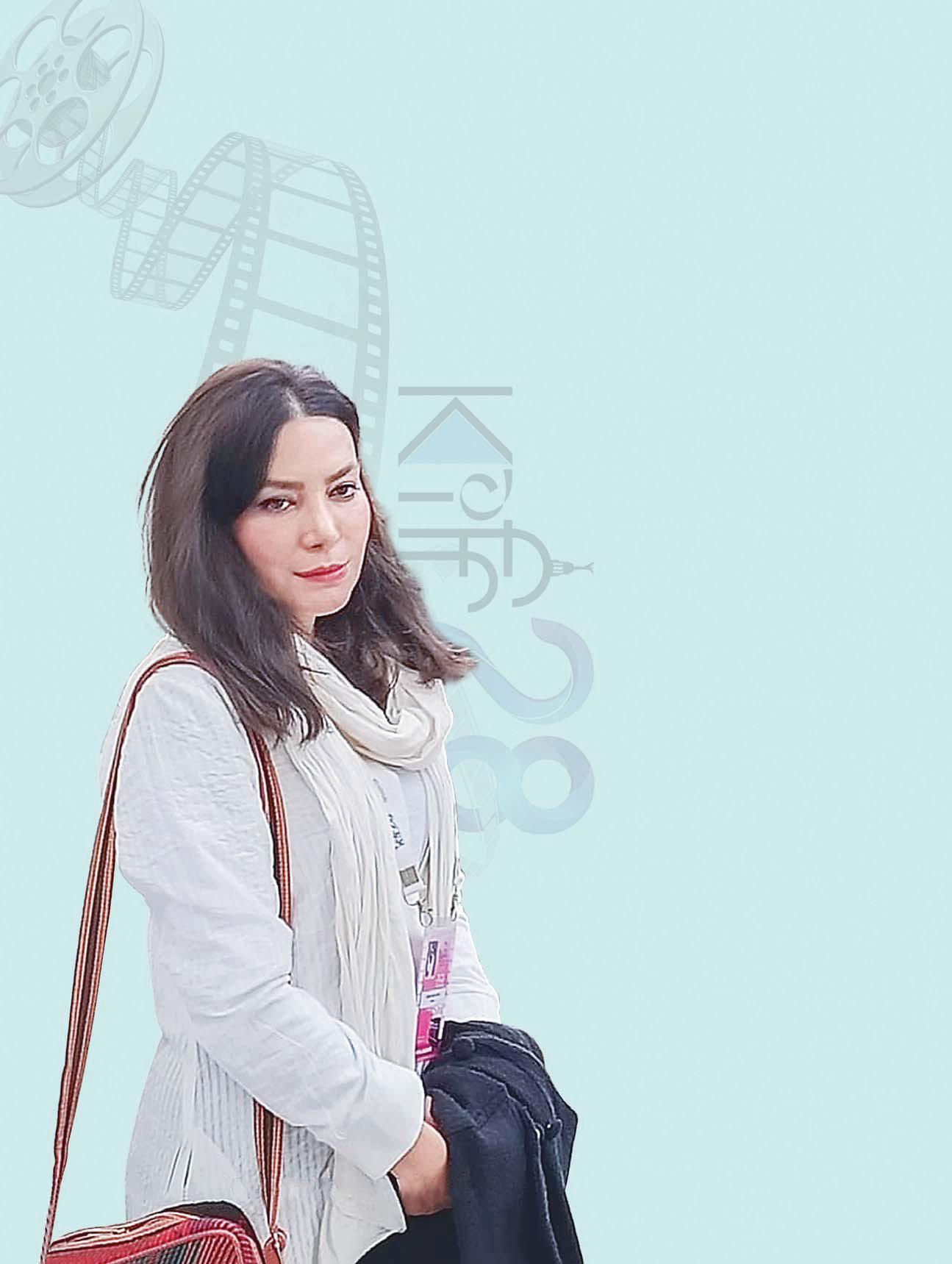
Towards the fag-end of the movie, 'Silent Glory', by Iranian film-maker Nahid Hassanzadeh, which eventually picked up The Royal Bengal Golden Tiger Trophy - Best Jury Award at the 28th KIFF in the 'International Competition: Innovation in Moving Images', the female protagonist Rohan, essayed by Jila Sahi clambers up on a dining table and starts dislodging the hanging tear-drop crystals from the overhead chandelier, as if suddenly overwhelmed by a messiah-complex, to distribute it to the astounded gathered. A 35 year old Rohan, unable to attract suitors, succumbs to marrying Mahi, a veteran village teacher. Mahi, who becomes the supervisor of a bucolic shrine, of whose healing power, he suspects. Rohan, who lives in a small room of that shrine, eventually hosts a lad who has taken refuge in the sanctuary of the fane to be healed. When the boy dies suddenly, Rohan, too, loses all her theological beliefs like Mahi. The fanatic villagers find it increasingly difficult to tolerate the presence of two heathens in the shrine and the village anymore. The film limits this nebulous theological faith of Rohan.
Catching up with Hassanzadeh after the screening we try to comprehend:
Did Rohan confuse faith with miracles?
この記事は Woman's Era の March 2023 版に掲載されています。
7 日間の Magzter GOLD 無料トライアルを開始して、何千もの厳選されたプレミアム ストーリー、9,000 以上の雑誌や新聞にアクセスしてください。
すでに購読者です ? サインイン
この記事は Woman's Era の March 2023 版に掲載されています。
7 日間の Magzter GOLD 無料トライアルを開始して、何千もの厳選されたプレミアム ストーリー、9,000 以上の雑誌や新聞にアクセスしてください。
すでに購読者です? サインイン

English Today
A tool for communication, not a mark of status.

ECO-CONSCIOUS Living
Sustainable choices for a brighter tomorrow.

A Serene Escape in Slovenia
The enchantment of Lake Bled.

Pseudo-Liberalism
When actions don't match beliefs. By Shivani

MANIPUR ON FIRE
The women bearing the brunt of ethnic strife.

Father's Love
In a quiet town by the shimmering sea, Lived a father, kind and wise as could be. With hands rough and worn from years of toil, He worked each day, turning earth's rich soil.

Kaka
A Word Across Worlds.

Echoes of a Peepani
A journey through time into my childhood.

Tasting The Future
Food and drink choices of the millennials.

NEED OF THE HOUR
Revolutionary change - is required!